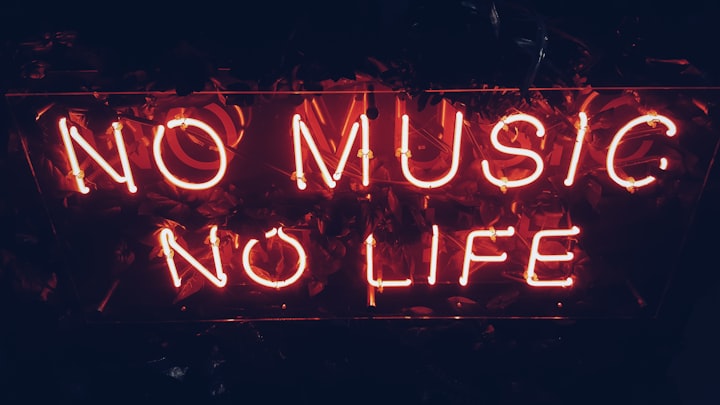Music has been an integral part of human culture and society for thousands of years. From ancient tribal chants and hymns to modern pop songs and classical symphonies, music has the ability to evoke strong emotions and connect us with others on a deep level. In this article, we will explore the human bond with music, examining its role in shaping human culture and society, as well as its impact on our emotional and social lives.
Music is believed to have played an important role in the evolution of human culture. Some researchers suggest that music may have evolved as a means of communication and social bonding, allowing early humans to convey information and emotions in a nonverbal way. Others suggest that music may have evolved as a form of courtship display, with males using music to attract females and demonstrate their fitness and status.
Regardless of its evolutionary origins, music has played a significant role in shaping human culture and society. Throughout history, music has been used for various purposes, including religious rituals, celebrations, and entertainment. In many cultures, music is considered a fundamental aspect of identity, reflecting cultural values and beliefs.
One of the most powerful aspects of music is its ability to evoke strong emotions and create a sense of connection between individuals. Listening to music can elicit a wide range of emotions, from joy and happiness to sadness and nostalgia. Music can also help us process and express complex emotions, providing a means of catharsis and healing.
One of the most significant benefits of music is its ability to regulate emotions and improve mood. Listening to music can evoke a wide range of emotions, from happiness and joy to sadness and nostalgia. Studies have shown that music can have a profound impact on our mental state, and can even help alleviate symptoms of depression and anxiety.
Research has demonstrated that listening to music can have a direct impact on the brain's reward system, which is responsible for feelings of pleasure and happiness. When we listen to music, our brains release dopamine, a neurotransmitter that is associated with pleasure and reward. This can lead to feelings of euphoria and can help improve our overall mood.
Furthermore, studies have shown that music can be used as a therapeutic tool to treat various mental health conditions, including depression, anxiety, and post-traumatic stress disorder (PTSD). Music therapy involves using music as a means of communication and expression, allowing patients to explore their emotions and feelings in a safe and supportive environment.
Enhancing memory and learning:
Music can also enhance cognitive abilities, including memory and learning. Research has shown that listening to music can improve memory performance, especially when learning new information. This is because music can act as a mnemonic device, helping us remember information by associating it with a specific melody or rhythm.
Furthermore, studies have shown that playing a musical instrument can improve cognitive function and memory in both children and adults. Learning to play an instrument requires practice, discipline, and focus, all of which can help improve cognitive abilities.
Playing music can also help improve language skills, as it requires the use of both auditory and motor skills. This can be particularly beneficial for children, as learning to play an instrument can help improve language development and literacy skills.
Promoting physical health:
Music can also have physical health benefits. It can lower blood pressure, reduce heart rate, and alleviate pain. This is because listening to music can stimulate the release of endorphins, the body's natural painkillers.
Furthermore, studies have shown that listening to music can improve exercise performance by increasing endurance and reducing fatigue. This is because music can help distract us from feelings of fatigue and discomfort, allowing us to push ourselves harder during exercise.
Music therapy has also been used to treat a variety of physical health conditions, including chronic pain, cancer, and Parkinson's disease. Music therapy involves using music as a means of relaxation, distraction, and pain management, helping patients to cope with the physical and emotional challenges of their condition.
Social benefits:
Music can also have social benefits, bringing people together and fostering a sense of community. Music is often used as a means of socializing, whether through attending concerts, playing in a band, or singing in a choir.
Furthermore, music can help improve social skills and promote social interaction, particularly in children with autism spectrum disorder (ASD). Music therapy has been shown to be effective in improving social communication and interaction in children with ASD, helping them to develop meaningful social relationships.
Conclusion:
In conclusion, music can have a significant impact on human life, providing a range of emotional, cognitive, physical, and social benefits. Whether through listening to music, playing an instrument, or participating in music therapy, music can help improve our overall wellbeing and enhance our quality of life. So the next time you're feeling stressed, anxious or down, try putting on some of your favorite tunes and see how it affects your mood and mindset.
While music is not a substitute for professional medical care, it can be used as a complementary therapy to support overall health and wellbeing. If you're interested in exploring the therapeutic benefits of music, consider seeking out a qualified music therapist who can guide you in using music to improve your health and quality of life.






Comments
There are no comments for this story
Be the first to respond and start the conversation.